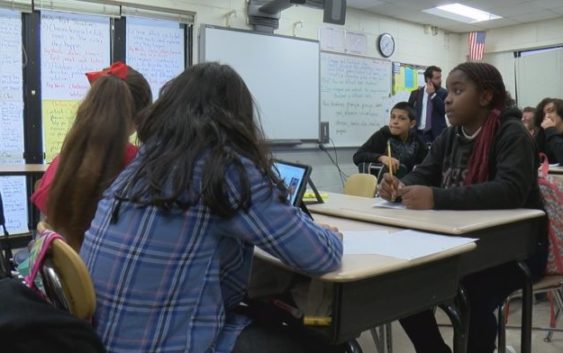- McDowell County wildfire spreads to 500 acres, evacuation orders in place
- Evacuations in Caldwell County due to wildfire
- Northwest Houston 'ghost neighborhood' caused by repeated flooding to become latest detention basin
- NHL playoffs: Hurricanes open playoffs Easter Sunday afternoon vs. Devils
- 2 wildfires spreading in rugged terrain in western North Carolina
Gov. Cooper proposes funding aimed to help schools recovering from Florence

NEW HANOVER COUNTY, NC (WWAY) — Could a change in the way schools are funded be better or worse after a natural disaster? Governor Roy Cooper visited one New Hanover County school that had a lot of damage from Hurricane Florence.
Florence temporarily forced students at Mary C. Williams Elementary out of their school. New Hanover County schools say they still need funding to fix all the damage.
Cooper believes there needs to be a better plan to get these schools the money that they need.
“There’s been a proposal put in the legislature of what you call a ‘pay as you go’, that would take some money off the top of the budget every year,” Cooper said. “This is not the smart way to do it. What you’re doing, essentially, is spending your gas money on buying a car.”
Cooper says schools statewide are under funded. He says the Senate’s proposal could take money away from teacher salaries or school supplies.
Cooper thinks the state should vote on a school bond – a type of funding the state had back in the 1990s.
“We think that close to a $2 billion dollar bond is something that we need to help local counties because there is about an $8 billion dollar need,” Cooper said.
Cooper says disasters like Florence make that need even greater. He says that with a bond, that type of funding is already secured.
Senator Phil Berger’s office released a statement in response to Cooper’s position on funding:
“It will cost one point two billion dollars in debt interest payments to get one point nine billion dollars through a bond. That’s like using your gas money to start a fire. That money could be used for other needs like improving school safety, raising teacher salaries or purchasing textbooks and other instructional supplies.”